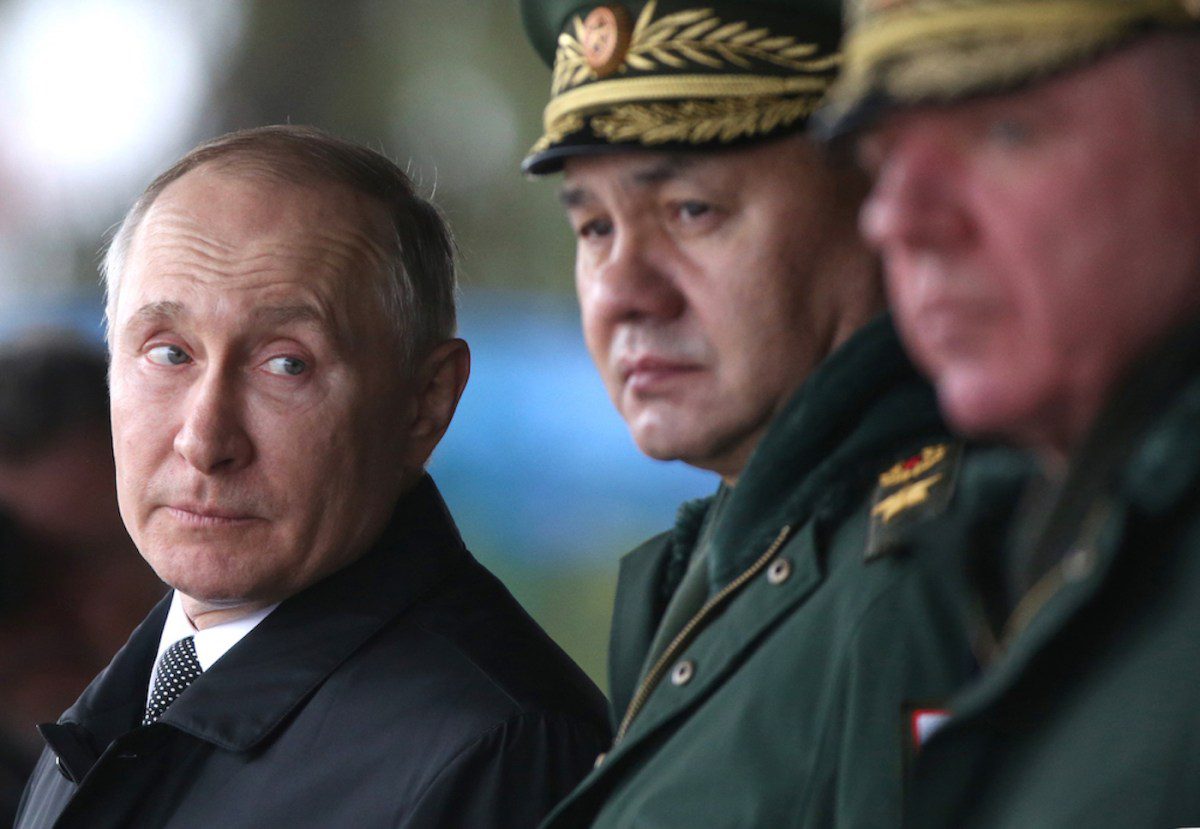Global Courant 2023-05-14 08:18:54
It doesn’t matter what war you’re talking about, but there have been and always have been battles between wartime generals and attempts by politicians to override advice from their military leaders.
One need only remember George Washington who did not trust his General Charles Lee, and after the Lee failed at the Battle of Monmouth, Lee was court-martialed in 1782.
Lincoln also had a lot of problems with his generals either continuing to lose battles or not pursuing the enemy after winning. This gave another Lee, Robert E, incredible opportunities to keep his troops and push for a political solution (but ended in Lee’s eventual surrender at Appomattox Court House).
There were more problems with generals in the First and Second World Wars. Eisenhower was often in conflict with his British colleagues, especially Field Marshal Sir Bernard Montgomery, which led him to make concessions that led to significant setbacks.
The Russians had their share of trouble, too, but Stalin and his enforcers were able to keep them in line, if they survived. Before the war, Stalin had some of his best military men arrested and shot – even Marshal Georgy Zhukov was sent to a gulag and only rehabilitated at the last minute because the Soviets were losing the war.
It should therefore come as little surprise that similar power struggles are going on in Russia today. The evidence is plain to see – plenty of top military leaders are at the box office, though a few have been rehabilitated, and open warfare is underway between Yevgeny Prigozhin, head of PMC Wagner, and the Russian General Staff and Defense Minister Sergei Shoigu .
Such controversies can even hinder a good fighting force, and it seems that something happened in Bakhmut’s case that seems to have stemmed from the controversy between Prigozhin and the generals.
Prigozhin’s forces lead the fight in Bakhmut and continue to make slow but steady progress. But the Ukrainians managed to alternate troops fighting in the city and bring in supplies.
Yevgeny Prigozhin, head of the Wagner group, speaks in Bakhmut in a video released earlier this year. Photo: Telegram channel / @concordgroup_official
Russian forces, not so much PMC Wagner, have tried to cut off Ukraine’s supply lines to the city, mainly by closing major and secondary roads and bombing Ukrainian supply sources, particularly in Chasiv Yar, the main supply point for Bakhmut in Ukraine. forces.
Still, the Russian army, which should have placed strong troops on the flanks to protect the city and roads, chose to place largely untrained and ill-equipped regular army troops (and some “volunteers”) on the flanks. These were overrun by the Ukrainians during a very strong reconnaissance.
The Ukrainians used crack troops, including elements of the Azov brigade, and armor, including tanks. According to what is reported, the Russian troops were only equipped with small arms, had no armor and had no anti-tank weapons. The result was predictable.
This massive blunder sparked Prigozhin a series of tirades, going so far as to accuse the “grandfather” – namely Putin – of being an asshole, a statement he tried to walk back after posting his blast to Russian social media. outlets.
The important point is that PMC Wagner and the Russian Army are estranged, and it’s not a stretch to suggest that the Russians deploy the poorest brigade they could find to tackle the Bakhmut flanks.
The alternative argument is that the Russian military is not convinced that Bakhmut is that important and is concentrating its resources in preparation for the expected upcoming Ukrainian offensive.
That’s a reasonable excuse, until you realize that the Russian military purposefully exposed these green and ill-equipped troops to real danger, leaving PMC Wagner largely unprotected. In other words, what the Russian military did is close to a crime.
Russian apologists try to explain away this mess. For example so-called Simplicius the Thinker, else unnamed, writing for Substack, says all of this was somehow part of a plan to set up “crumple zones” to trap the Ukrainians. If this were so, the fall would be obvious.
But in fact, Simplicius is a shrewd analyst and pro-Russian (and probably Russian himself), who this time has brought out a story that lacks any semblance of credibility.
Meanwhile, Putin has a real problem. Bickering and infighting in his military operation is a good way to get your troops rolled up, and he sure knows it. But Putin is also a loyalist.
He has been loyal to this third-rate defense minister Shoigu, who has no real combat capabilities and is not a strategic thinker. He is also loyal to his good friend Prigozhin, using him to rescue Russian army failures on the battlefield in Ukraine, while also deploying PMC Wagner forces in Syria and Africa.
Sergei Shoigu, left, has come under fire for his perceived lack of strategic thinking. Image: Twitter
If Putin yielded to the Russian Army General Staff and fired Prigozhin, Putin would lose control of his armed forces and could be replaced by a top general in a coup. His KGB buddies (now called the SVR) may not save him from that, and they may just go over to the dark side as well.
After all, the Russian secret services are opportunistic and could dump Putin if the military wants him out. The roles of Shoigu and General Valery Gerasimov, the head of the Russian Defense Ministry and General Staff respectively, remain with Putin so far. But who knows tomorrow?
If Putin can’t fire Prigozhin, he can’t dump Gerasimov or Shoigu. It is therefore likely that he will try to wait out the setbacks. Perhaps Prigozhin will quit or get hurt; maybe the Russian army can start behaving more responsibly.
Maybe the horse will talk.
Stephen Bryen is a senior fellow at the Center for Security Policy and the Yorktown Institute. This article was originally published on his Substack, Weapons and Strategy. Global Courant republishes it with permission.
Similar:
Loading…








